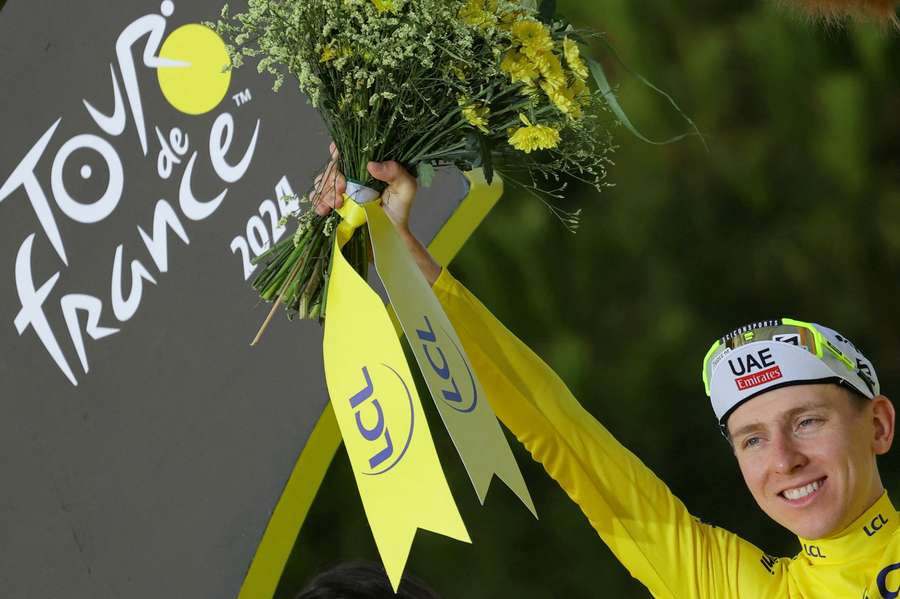The 2025 Tour de France will be the 112th edition of the most famous bike race in the world. This year will be the 50th anniversary of the first Tour finish on the Champs-Élysées and will provide plenty of literal and figurative twists and turns as history is on the line.
Tadej Pogacar will aim to become only the sixth rider ever to win four yellow jerseys, and the 26-year-old looks a real possibility to achieve this goal with a raft of wins already in 2025.
Below, we look at this year's route, starting with the Grand Depart in Lille, Normandy on Saturday, July 5th and concluding in Paris, 21 stages later, on Sunday, July 27th.
The route and length
This year, for the first time since 2020, 100% of the tour will be in France. Of the 21 stages, seven are flat stages, six are hilly, six are mountain stages, and there are five mountain finishes. There are two time trials during the tour and two rest days as well. Overall, the route will visit 11 regions of France and cover 3,320 kilometres (2,063 miles).
Starting in Lille, by stage seven, they will be in the North-West of the country at Mur de Bretagne. Heading south, they reach Toulouse on Stage 11 for a rest day, before they enter the Pyrenees next. A jaunt around here is followed by an eastward cycle to Montpellier at the end of stage 15 for their second rest day. The last five stages see the riders ride north towards the east coast before the final stretch to Paris.
Highest Point on the Tour de France
The climbs on the Tours are some of the most unforgiving parts of the stages. This edition will see the riders reach the summits in the Massif Central, the Pyrenees, the Alps and the Jura. The highest point of the whole race will be when the riders reach Col de la Loze, a mountain pass in the French Alps, with an elevation of 2,304 metres and a brand-new approach from the Courchevel side, which has never been ridden in the Tour before. In total, riders vertically rise 5150 kilometres.
Longest stage of the Tour de France
The longest stage of the Tour is quite early on, with the 212 kilometres second stage from Lauwin-Planque to Boulogne-sur-Mer. A hilly route with a gruelling finale of three steep hills in the last 30km, and an uphill drag race to the finish.
Map and Stages
Stage one: Lille Métropole to Lille Métropole - Saturday, July 5th -185km
Stage two: Lauwin-Planque to Boulogne-sur-Mer - Sunday, July 6th - 212km
Stage three: Valenciennes to Dunkirk - Monday, July 7th - 178km
Stage four: Amiens to Rouen - Tuesday, July 8th - 173km
Stage five: Caen to Caen individual time trial - Wednesday, July 9th - 33km
Stage six: Bayeux to Vire - Thursday, July 10th - 201km
Stage seven: Saint-Malo to Mûr-de-Bretagne - Friday, July 11th - 194km
Stage eight: Saint-Méen-le-Grand to Laval - Saturday, July 12th - 174km
Stage nine: Chinon to Chateauroux - Sunday, July 13th - 170km
Stage 10: Ennezat to Le Mont-Dore Puy de Sancy - Monday, July 14th - 163km
REST DAY: Tuesday, July 15th
Stage 11: Toulouse to Toulouse - Wednesday, July 16th - 154km
Stage 12: Auch to Hautacam - Thursday, July 17th - 181km
Stage 13: Loudenvielle to Peyragudes individual time trial - Friday, July 18th - 11km
Stage 14: Pau to Luchon-Superbagnères - Saturday, July 19th - 183km
Stage 15: Muret to Carcassonne - Sunday, July 20th - 169km
REST DAY: Monday, July 21st
Stage 16: Montpellier to Mont Ventoux - Tuesday, July 22nd - 172km
Stage 17: Bollène to Valence - Wednesday, July 23rd - 161km
Stage 18: Vif to Courchevel Col de la Loze - Thursday, July 24th -171km
Stage 19: Albertville to La Plagne - Friday, July 25th - 130km
Stage 20: Nantua to Pontarlier - Saturday, July 26th - 185km
Stage 21: Mantes-la-Ville to Paris Champs Élysées - Sunday, July 27th - 120km

